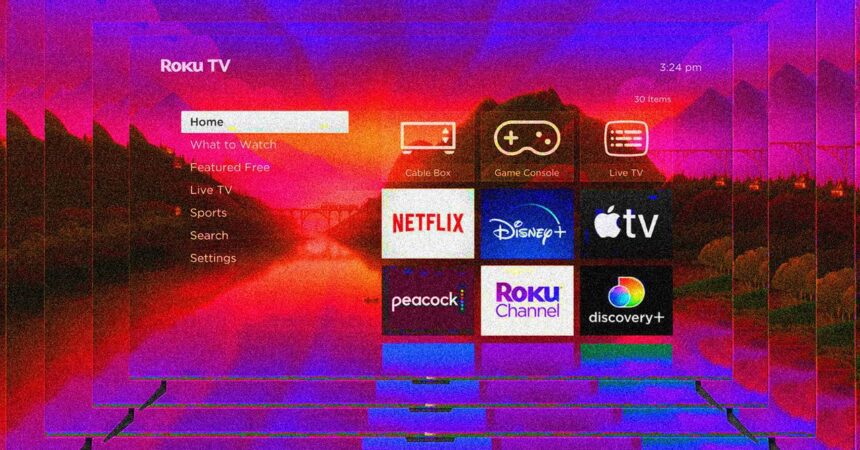Televisions and streaming devices operating on Roku OS are already exposed to video advertisements displayed on the home screen. Now, Roku is exploring the possibility of taking this further by implementing mandatory video ads that users must watch before accessing the Roku OS home screen.
Reports emerged online this week from Roku users who experienced video ads automatically playing prior to viewing the OS’s home screen. For instance, a Reddit user shared, “I just turned on my Roku and was shown a … ad for a movie before reaching the regular Roku home screen.” Numerous users reported encountering an advertisement for the film Moana 2. While there is an option to close the ad, some individuals appear to have missed that feature.
When contacted for comment, a Roku representative provided a statement confirming that the autoplaying ads are part of an expected trial, and are not a permanent feature of Roku OS at this time. Roku indicated that it is merely experimenting with this advertising capability.
According to Roku’s spokesperson, the company’s business “has and will always benefit from ongoing testing and innovation in design, navigation, content, and our high-quality advertising offerings,” adding, “Our latest test is simply one example of our efforts to find new ways to highlight brands and programming while still delivering an enjoyable and straightforward user experience.”
Roku did not respond to inquiries regarding whether there are intentions to make autoplaying ads a permanent feature on Roku OS, which devices are affected, the rationale behind using autoplay ads, or potential customer reactions.
“Unacceptable”
The bulk of comments reviewed by Ars Technica regarding this marketing “test” suggest that users would consider abandoning their Roku devices if the software continues to require them to view an ad prior to accessing their desired content.
A user on Roku’s community forum expressed, “I hope this is a one-time occurrence. I discarded all my Amazon devices years ago because of similar issues. If this persists, my Rokus will be next.”
Community members fearing a permanent change labeled the ads as “unacceptable” and “intrusive.”
If Roku escalates its ad exposure on users’ devices from static images to dynamic video ads accompanied by sound, it could push customer tolerance to its limits. Many users who have accepted a static image displayed in an inconspicuous area may find moving ads significantly more distracting and unacceptable.
“I was fine with the static ad on the side. Forcing a loud commercial is terrible,” commented one Reddit user.
As a budget-friendly streaming hardware brand, Roku has a history of stretching the limits on advertising. The company even sought to patent technology that could overlay ads on any connected device (though Roku has never launched this capability).
There are alternative smart TV platforms that offer a less ad-heavy experience than Roku. However, generally speaking, it is becoming increasingly challenging for smart TV users to escape advertisements. All major TV manufacturers, from budget options to luxury models, are increasingly relying on ads and tracking to augment revenue in light of declining hardware prices, sales, innovation, and mounting competition.
This article originally appeared on Ars Technica.










